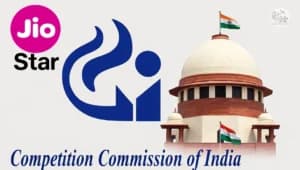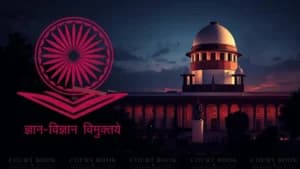In a significant ruling, the Supreme Court has clarified that a civil suit cannot be rejected at the initial stage under Order VII Rule 11 of the Code of Civil Procedure (CPC) when the issue of limitation involves disputed facts. The Court emphasized that such matters require a full trial to establish the factual background.
The case, titled P. Kumarakurubaran vs P. Narayanan & Ors., involved a challenge to a sale deed allegedly executed fraudulently by the appellant’s father under a limited power of attorney. The appellant, P. Kumarakurubaran, claimed he discovered the fraudulent sale only in 2011 and filed the suit in 2014 within the limitation period prescribed under Article 59 of the Limitation Act, 1963.
Read Also:- Supreme Court Directs Inclusive eKYC Norms, Recognises Digital Access as Fundamental Right
“The High Court, however, proceeded to reject the plaint solely on a prima facie assumption that the suit was barred by limitation, without undertaking any examination as to whether the plea regarding the date of knowledge was demonstrably false or inherently improbable in light of the record. In the opinion of this Court, such an approach amounts to an error of law and constitutes a misapplication of the well-established principles governing the exercise of power under Order VII Rule 11 CPC,”
— Supreme Court
Initially, the trial court rejected the defendant’s plea under Order VII Rule 11, observing that the grounds of limitation and valuation required a detailed trial. However, the Madras High Court, in revision, reversed that decision, dismissing the plaint at the outset for being time-barred.
Read Also:- Supreme Court: Civil Suit Alone No Ground to Quash FIR in Criminal Cases
The appellant challenged this decision in the Supreme Court. The bench, comprising Justices JB Pardiwala and R. Mahadevan, ruled in favour of the appellant, holding that:
“When the date of knowledge is specifically pleaded and forms the basis of the cause of action, the issue of limitation cannot be decided summarily. It becomes a mixed question of law and fact, which cannot be adjudicated at the threshold stage under Order VII Rule 11 CPC.”
The Court highlighted that determining whether the appellant had earlier knowledge of the transaction or whether the claim of delayed knowledge was credible, required evidence and trial—not assumptions.
The appellant had asserted that the power of attorney given to his father was only for construction-related tasks and did not authorize property alienation. The Court noted that these serious allegations of misuse and fraud raised triable issues, making summary dismissal inappropriate.
In its ruling, the Court relied on earlier judgments, including Daliben Valjibhai v. Prajapati Kodarbhai and Chhotanben v. Kirtibhai, reiterating that limitation must be tested through evidence when disputed.
“The trial Court had rightly held that the issue of limitation necessitated adjudication upon evidence… The High Court’s approach warrants interference,”
— Supreme Court
The apex court allowed the appeal, restored the trial court’s decision, and directed that the matter proceed on its merits without being influenced by any prior observations.
Case Title: P. KUMARAKURUBARAN VERSUS P. NARAYANAN & ORS.
Appearance:
For Petitioner(s) :Mr. K. K. Mani, AOR Ms. T.archana, Adv. Mr. Rajeev Gupta, Adv.
For Respondent(s) : Mr. S. Nandakumar, Sr. Adv. M/S. Ksn & Co., AOR Mr. Siddharth Naidu, Adv. Mr. V Balachandran, Adv. Ms. Deepika Nandakumar, Adv. Mr. Viresh Kumar Bhawra, Adv. Mr. Sandhya Dutt, Adv. Mr. Aakash Elango, Adv. Mr. Naresh Kumar, AOR













